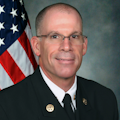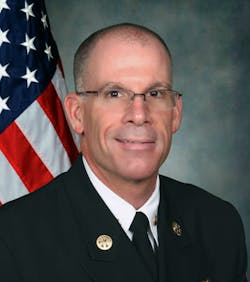The complexities of the American fire service are far less obvious when viewed from the outside looking in. Armed with limited information and ulterior motives, those who are less informed may see the solutions to any perceived problems as overly simplistic, yet the operational reality is far more complicated.
A recent op-ed in the Washington Post by University of Miami Professor Fred S. McChesney suggested a solution for many mid-sized communities around the country that has angered firefighters, both paid and volunteer, from coast to coast. McChesney’s solution to municipal waste is simply “throwing out the very concept of the career firefighter and return to the tradition of volunteers.”
Armed with statistical data from the National Fire Protection Association (NFPA), McChesney makes the case that fires are on the decline and the era of massive fires that claim hundreds of lives is over. McChesney further states that union leaders and fire chiefs have found new ways to justify their growing budgets and payroll by “accompanying” ambulances to medical emergencies and, in some cases, supporting neighborhood beautification, gang intervention, substitute-teaching and other downtime pursuits.
As one might imagine, the immediate response of many firefighters who read McChesney’s article is frustration, anger and discontent. Not surprisingly, the slew of comments that followed the article were aggressive and directed at the character, reputation and intelligence (or lack there of) of Professor McChesney.
Our forefathers did indeed build a firm foundation for the fire service on the backs of volunteers, and in many communities, these services continue to be provided in a proud and professional manner by volunteers, but to assume that we can expect these same services to be provided in every community in the same manner is wildly unrealistic. Yet in retrospect, the critical conversations that Professor McChesney’s op-ed have created are exactly what we need in every fire station in America (paid and volunteer). No, I’m not advocating nor supporting the concepts or the mistruths that Professor McChesney has shared. I’m advocating the need for critical conversations about the way we operate day to day, the perceptions our policies and operations create, and the means in which we justify the decisions we make.
While I will not pretend to know the motives behind Professor McChesney’s efforts, I know for a fact that it doesn’t take a struggling economy or tough economic times to draw out the critics of the fire service, paid or volunteer. It is true that fires are down and the duties and responsibilities of the modern-day firefighter are much different than they were 10, 15 or 20 years ago. The question is: What have we done to educate the citizens and the governing bodies of our communities about the changes we’ve made and the services we provide?
If asked by one of your citizens or public officials, are you and your firefighters prepared to address the questions posed by Professor McChesney? If fires are down, why do we need so many firefighters? Do we really need an engine or a truck crew with a full complement of firefighters to respond to medical emergencies? Are we taking on new tasks to save jobs or are we assuming these expanded roles to better support the needs of our community?
To us, the informed insiders, the answers to these questions seem obvious, but the less informed outsiders still deserve an educated, well-informed, courteous response backed by statistical data, written policies and demonstrated performance.
It’s human nature for any of us to become frustrated and to lash out at those who challenge our personal beliefs or the motives of our well-intended efforts. But a true professional is willing to rise above the ill-intended motives (perceived or otherwise) of some and seize the opportunity to educate and inform.
The services we provide as firefighters and first responders will forever be challenged by the ever-changing dynamics of the hazards we face, but we should never fear nor repudiate the challenges of those who question our efforts. As firefighters we are sworn to serve and protect the citizens of our communities to the best of our ability given the resources provided. By being critical of our daily performance and constantly evaluating the methods and means in which we operate, we can rest assured that any challenge imposed by the informed or uninformed will be quickly dismissed.
About the Author

Timothy E. Sendelbach
Editor-in-Chief
Timothy E. Sendelbach is a 30-year student and educator of the fire and emergency services, and former editor-in-chief for Firehouse. He has served as an assistant fire chief with the North Las Vegas, NV, Fire Department, as the chief of training for Savannah (GA) Fire & Emergency Services and as assistant fire chief for Missouri City, TX, Fire & Rescue Services. He is a credentialed Chief Fire Officer and Chief Training Officer and has earned a master’s degree in leadership from Bellevue University, bachelor’s degrees in fire administration and arson and an associate’s degree in emergency medical care from Eastern Kentucky University.
